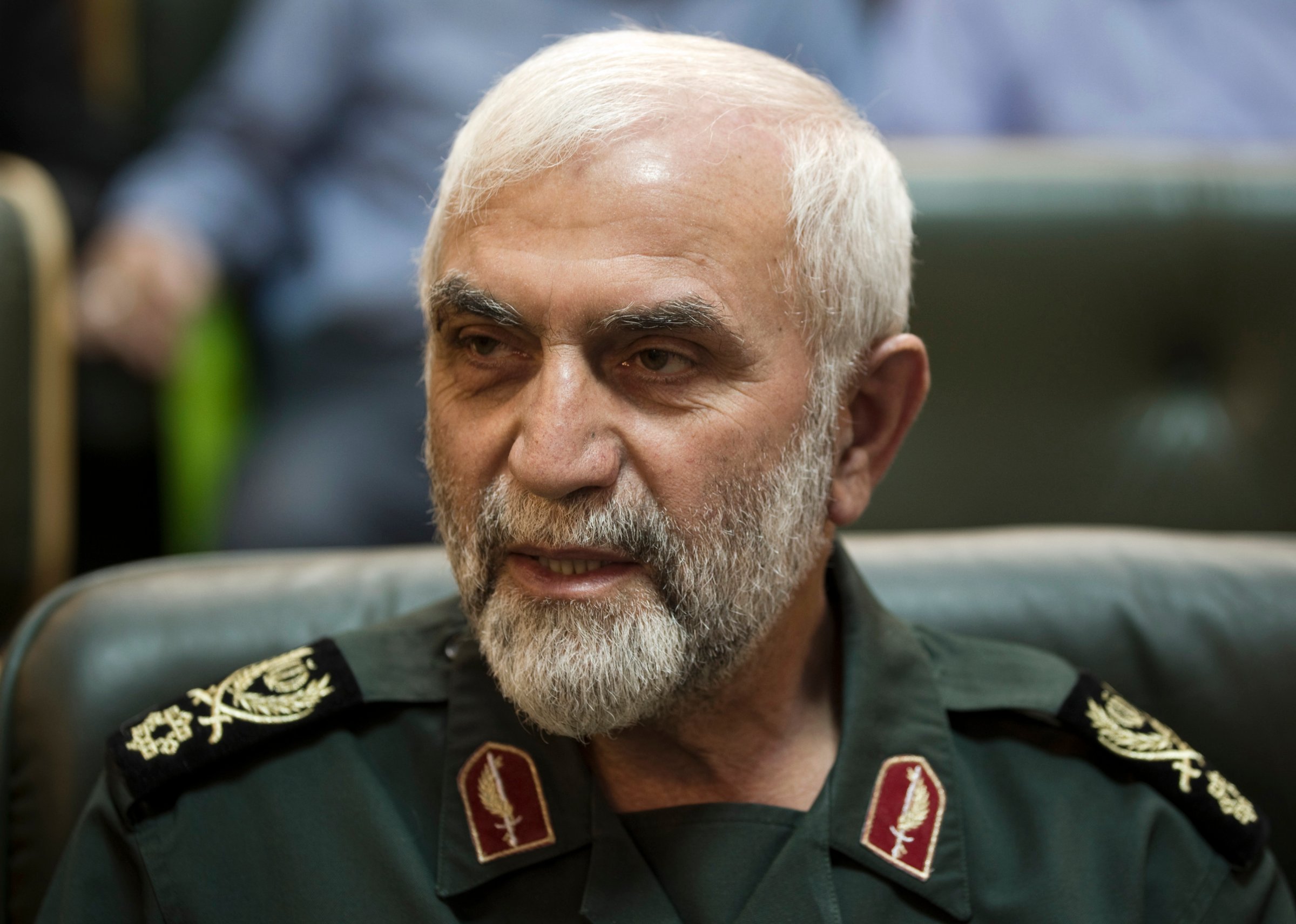
Iran’s military involvement in Syria’s civil war is not much of a secret. Yet when a commander in the Revolutionary Guard Corps spoke openly about it on Sunday, the Iranian news story reporting his comments lasted only a few hours online before authorities there took it down.
“Today we fight in Syria for interests such as the Islamic Revolution,” Hossein Hamedani said at a conference, according to the original post by the Fars news agency. “Our defense is to the extent of the Sacred Defense,” the commander went on, using the regime’s term for the 1980-88 war with Iraq, a reference that signals the importance the Islamic Republic places on the survival of the Syrian regime of President Bashar Assad.
Hamedani, identified by Radio Free Europe/Radio Liberty as a former commander of the Guard’s Rasulollah division in Tehran, boasted of training Syrian government forces, and even establishing “a second Hizballah” in Syria, the first one being the Shiite militia Iran established in Lebanon after Israel’s 1982 invasion of that country. Until it was taken down, the Fars story also said Hamedani claimed 130,000 members of Iran’s paramilitary volunteer Basij were trained and ready to go to Syria.
The volunteers would be joining an Iranian force that has been assisting Assad since early in the three-year conflict. The head of the Revolutionary Guards, Mohammad Ali Jafari, acknowledged as much in September 2012, though he said the involvement was limited to the Corps’ Quds Force, which operates clandestinely abroad. Jafari made the admission a month after a busload of Iranians was captured outside Damascus by the Free Syrian Army, and described by Iran as religious pilgrims. Their journey turned out to have been booked by the Revolutionary Guards’ travel agency.
But the most striking evidence of Iranian boots on the ground in Syria is video footage purporting to show a Guards commando unit. Filmed by an Iranian documentary maker, it was obtained by rebels who overran the unit and gave the footage to the BBC, which named the resulting documentary, Iran’s Secret Army. “It’s quite dramatic footage, and gives us our best information on the Iranian presence,” says Joshua Landis, director of the Center for Middle East Studies at the University of Oklahoma. “Iran’s involvement has been pretty heavy.”
So why not admit it?
It may be a question of keeping fuel off the fire. Iran feels it must deny its military involvement so as not to motivate the rebel side further, says Landis. The war has devolved into a sectarian conflict, with Shiite Iran and Hizballah aligned with Assad—whose heterodox Alawite faith is seen as kin to Shiism—against overwhelmingly Sunni rebel forces, which include extremists who regard Shiites as apostates. “The main rebel battle cry, the main rebel insult is ‘nizam majousi’,” or Persian regime, says Landis, who blogs at Syria Comment. “To call Syrians Alawite and assisters of the regime majous, means they are neither the right religion nor the right nationality or ethnic group: neither Sunni nor Arab.”
The accusation was also heard during the U.S.-led war in Iraq, where any Shiite force was apt to be labeled—and often were—a cat’s paw of Tehran. But in Syria’s case it’s more likely to be true, Landis notes. Lebanese Hizballah has played a crucial battlefield role over the last year, and Tehran has trained, armed and directed government forces, as well as providing elite special forces of its own. “The main accusation there is that all Shiites and [regime supporters] are crypto-Iranian,” he says.
But given the potency religion has already provided in fueling the conflict, it’s evidently not in Iran’s interest to further fire up the Sunni side by acknowledging its presence on the battlefield — even if denying it means suffering the occasional Wizard of Oz, pay-no-attention-to-that-man-behind-the-curtain moment.
More Must-Reads from TIME
- Cybersecurity Experts Are Sounding the Alarm on DOGE
- Meet the 2025 Women of the Year
- The Harsh Truth About Disability Inclusion
- Why Do More Young Adults Have Cancer?
- Colman Domingo Leads With Radical Love
- How to Get Better at Doing Things Alone
- Michelle Zauner Stares Down the Darkness
Contact us at letters@time.com